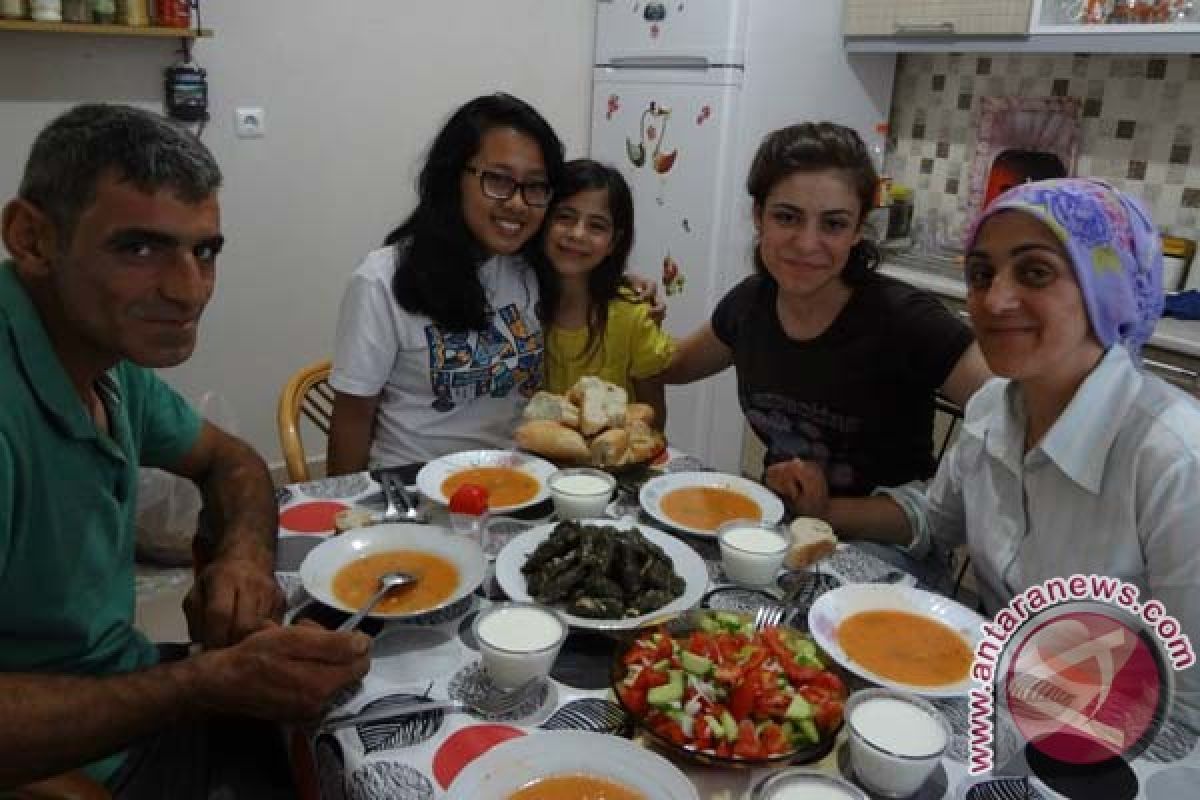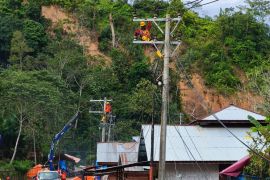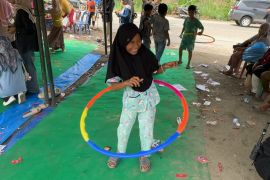Turkish families want to share with the students, especially in the holy Ramadan month, since we are living far from our families."Istanbul (ANTARA News) - "Sharing Starts from Our Table" seems to be the motto of every Turks especially during the fasting month of Ramadan as they tend to implement even more this of the motto.
This year`s Ramadan is the first time for me to be alone and far from my family. Usually, in Indonesia, I dine "suhoor" and "iftar" with my family at home.
But this time, I am doing it in Turkey with my Turkish friends for two months under an AIESEC student exchange program, thus changing my Ramadan routine activities I usually have in Indonesia.
One major difference could be seen in the fasting time. In Indonesia, we start fasting at 5 am and break the fast at 6 pm, approximately 13 hours of not eating and drinking.
While in Turkey, the break-fasting time (the sunset) is at 8.30 pm, while the sunrise is at 3.30 am, so it is around 17 hours of fasting, 4 hours difference than the usual fasting duration in Indonesia.
At first I was quite worried and thought of not fasting during my exchange time in Turkey, with an additional fact that we do so much walking in Turkey`s hot sunny summer weather.
But luckily some of the other exchange participants were Moslems, so they also fast during Ramadan. The first day of Ramadan came, I survived, so I continued fasting on the next days.
One thing in common for Turkish and Indonesian custom during Ramadan is the use of drum rolls before the suhoor time. Drummers boys and men go around the neighbourhood, making loud noises with their drums to wake people up for the pre-fast meal.
It is a reminder to wake up and eat something before the fast begins. After suhoor, people answer the prayer to call and rush to the mosques for morning prayer.
Turkey has a population of about 70 million. Almost all Turkish people are Muslims, while 0.7% of the population believe in the other religions. The people that do fasting in Turkey have a very special tradition in Ramadan. They invite other people to do iftar in their houses.
During my visit to Ankara, I never had iftar at home. I, along with my Indonesian roommates, were always invited to do iftar in different places.
Once I had iftar at a Turkish family`s house, we did not know who the family was. They said that Turkish families like to invite people, especially students to have iftar at their house.
"Turkish families want to share with the students, especially in the holy Ramadan month, since we are living far from our families," said Utami (22), an Indonesian student who graduated from Gazi University, Ankara.
At the Turkish family`s house, we were treated as if we had been a part of their family. The smiles and greetings, we felt the warm hospitality of Turkish people. The food they served were also perfect, a complete meal with appetizer, main course, and dessert, as if they were serving their own family, not a stranger.
Turkish people usually eat a complete three type of meal during iftar. They usually eat orba (Turkish soup) as the appetizer, some main course such as pilav (Turkish rice) and chicken, and some tatl (Turkish desserts) or fruits.
Not only families who like to invite people for iftar, but also some organizations and schools. I sometimes had iftar at a fund-raising event held by a social non-governmental organization, such as PASIAD and Sevgi Eitim ve Dayanma Derne`i (SEVDADER, Education and Solidarity Association). PASIAD and SEVDADER held a fund-raising event to build schools and education facilities in foreign countries like Senegal and Indonesia.
That event was supposed to be for businessmen, but they also invited yabanci (foreigners) and misafir (visitors). It is clearly shown that Turkish people love to share their food to people, especially in the Ramadan month, because sharing starts from our table.
Secular Country
Another difference between Ramadan in Turkey and in Indonesia is the feeling of being in a secular country. The restaurants in Turkey are open as usual as if it were not in Ramadan.
They also do not do the same thing as what we often see half-covered window with curtains of many restaurants in Indonesia in order to respect the people who are fasting.
I once had iftar at a caf by the seaside in Istanbul and the food was great, serving Turkey`s usual appetizer-main course-desert, also with dates they served complimentarily on the table, to fulfill Prophet Muhammad`s sunnah to eat at least three dates during iftar.
But about an hour later after I finished my meal, the caf started to turn on some loud high bass dance music with the usual dim nuance of a night club, with sparkling colorful lights reflected from a disco ball. Now I realize that I am having iftar at a night bar.
Alcoholic drinks were sold in spite of Erdoan`s highly-protested policy to ban alcoholic drinks at night. The sound of prayer calls (azan) and dance music plays together, showing the secularity of Turkey.
In Turkey, the seculars and the observant Muslims live together in harmony. They respect each other`s beliefs and hold on to their beliefs with high tolerance. What a unique Ramadan in Turkey.
*) Nadira Puteri Kusaeni is a participant of Association internationale des étudiants en sciences économiques et commerciales (AIESEC or International Association of Students in Economic and Commercial Sciences) students exchange program in Kocaeli, Izmit, Turkey.
(T.A017/E002)
Reporter: Nadira Puteri Kusaeni *)
Editor: Priyambodo RH
Copyright © ANTARA 2013












